Text
Who wants Olympics?
Who wants Olympics? MINE! MINE! MINE! MINE! MINE! - GREECE, BRAZIL, CHINA, etc.
The seagulls screaming MINE scene from Finding Nemo just popped up while I was thinking of how countries want to host the Olympics so bad. So, last time I talked about how shared experience could help make the world better. This time, let’s talk about how shared experiences can destroy the world too. Water can flow, or it can crash, right?
Back in 2008, it was the first time I went to Beijing. As all we know, that year was the year China hosted the Olympics. The moment I stepped out of the airport, everything I saw was Olympics related. As an eight-year-old kid, I didn’t really feel any Olympics vibe. All I felt was, TOO MUCH! WHY DOES EVERYTHING HAVE TO DO WITH THE OLYMPICS?! Then in 2018, 10 years later, I went to Beijing again. It was so different, everything has changed and nothing was the same. Flags were gone, stadiums were gone, stages were gone. I kinda had that feeling that they don’t really care about sports, they just want to let the people around the world know that they can host the Olympics and the fact that the Olympics is not so much about sports but soft power.
To make this blog more “persuasive”, I did my homework. Why is “We Are The World” a good thing and why is the Olympics bad? Well, one raises money for children who are in need in Africa, while one makes a ton of people move away from places where they’ve been living for over a century and I didn’t even mention the pollution and financial crisis caused by hosting the Olympics yet. The Olympics didn’t just destroy A country but countries, and it doesn’t stop at poor, developing countries, it also affects what we call rich, developed, first world countries.
Here comes the theme of this blog, How do so many countries destroy themselves because of Globalization and the Olympics?
As early as the 1976 Olympics almost broke Montreal, and yes it happened in Canada, things about the Olympics are not always that positive. Only in 2007, 31 years after the Olympics in Montreal ended, the city finally paid off the last bill, a debt they have been bearing for 30 years. What does that mean? Imagine yourself, as a taxpayer, was left with a debt that took 30 years to pay off. For what? For appearance, all this burden just for a fourteen-day show-off, with the expense of a city almost got destroyed. Montreal is lucky that its people are able to pay the debt off for the city, but not all cities are that lucky. Look at Athena, it crashed the country. Look at Rio, many people lost their homes and lives because the government wanted to host the Olympics. It’s almost the same for China, China couldn’t really get away from this too. Here comes the “Big O”. O stands for Olympics but also stands for Owe. What happened to Montreal even became a professional term which is used to describe those countries who are in financial crisis because of hosting the Olympics, “Montreal Pitfall”. Unfortunately, “Montreal Pitfall” is just one of many symptoms of the Post-Olympic Effect. Post-Olympic Effect means the economic growth of the host country keeps accelerating before the Olympics starts and reaches its peak at the game year. After that, the host country will have different degrees of attenuation, but in most cases, everything fades off rapidly. Retail, tourism, etc. fall into recession immediately, stadiums standing idle, increasing rate of unemployment, financial strain on cities caused by the White Elephants. Sadly, this effect can be found easily from many host countries in history.
So is hosting the Olympics elitism? I would say partially. As a matter of fact, hosting the Olympics DOES have a positive impact on the economy and society of the host country. It can become a booster for economic and social development, cultural values can be spread widely to different places and create shared experiences. For some big and rich countries like the USA, Germany or the UK, the negative effect is not that obvious. However, for some developing countries like Greece, Japan, Russia, Brazil and China, the effect can really shock their economic systems and it takes time to recover. Despite the economic aspect, some of the criticism is humanistically and environmentally. Before the Rio Olympics began, about 250,000 people were forced to relocate, often violently. In favela(slum neighborhood in Brazil), almost 70,000 people were displayed and around 1000 poor people, mostly black men were killed during what they called “Pacification”. “Pacification” is actually an action the government took to clean up the city’s image before the Olympics by violently “REMOVING” the poor people. More than that, there is a lot of criticism against how the Brazil government ruined the environment just to host the Olympics. For instance, eradicating a ton of trees and land, dumping all the toxic waste into the rivers where there are people living nearby. The Winter Olympics in Pyeongchang, they completely destroyed a whole mountainside. There were uncountable trees and animals and some of them were close to extinction and more and more.
Now we know how the water can crash the boat, which leads to an important question. With all that negativity, why do some countries still want to host the Olympics so bad? The Olympics isn’t just about sports, we all know that. It’s a propaganda of the host country, it’s also a display of its soft power. Hosting the Olympics is like using drugs in a game, not that worthy but you still want it. Is using drugs good for your health? No. Is it worthy? No. Does it come with serious consequences? Yes. But I want people around the world to know that I’m good! I’m one of the best! With the Olympics comes with the great attention from everyone around the world. The host country becomes more visible, it becomes one of the “powerful” countries because it has the ability to host the Olympics. A country would do anything to prove that it is able for them to host the Olympics. We are talking about using money, land, labor, and all sorts of resources because hosting the Olympics is a symbol of power. Thanks to globalization, everyone’s eyes are on you. Every country wants to be seen as a powerful country, every country wants to have a ticket to “Global Citizen”, what’s better than hosting the Olympics to prove that? I personally don’t agree with the idea of developing countries hosting the Olympics, because the destruction it brings is far more greater than the benefit. After all, when the medals are awarded and the fireworks are played, the people live there are ones are left to deal with the result.
Don’t try to shock or impress the world with the Olympics, because the people will be the ones paying for it.
Who wants Olympics now? NEIN...NEIN...NEIN.......
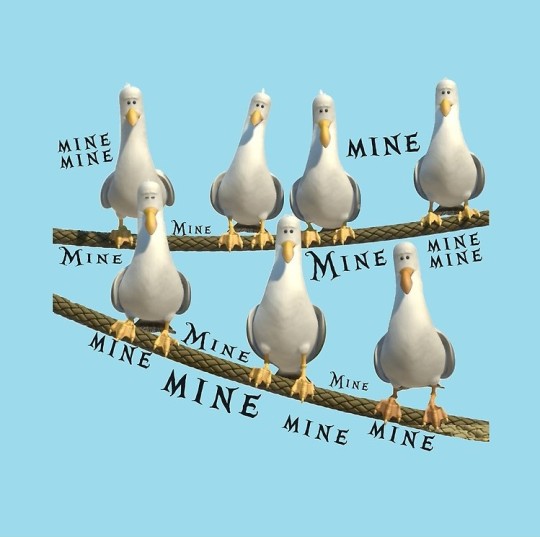
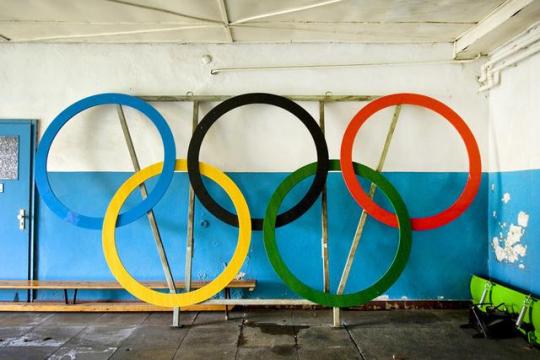
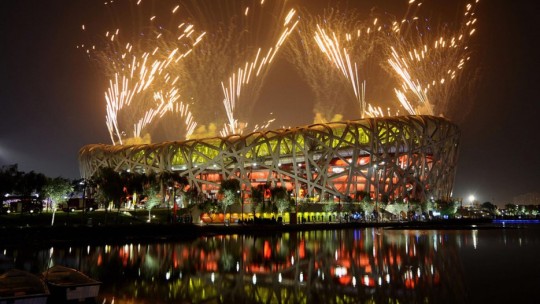
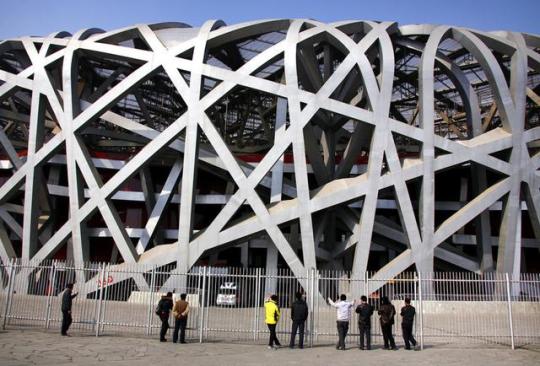
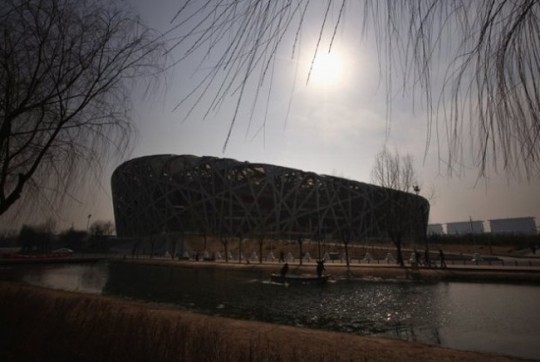
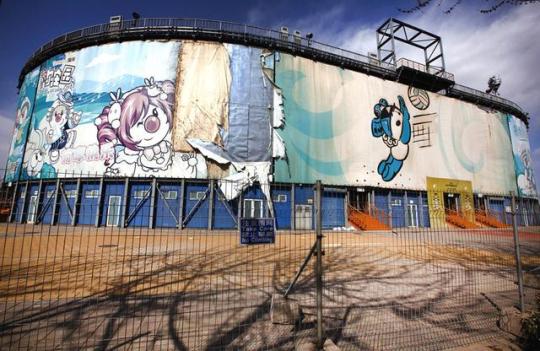

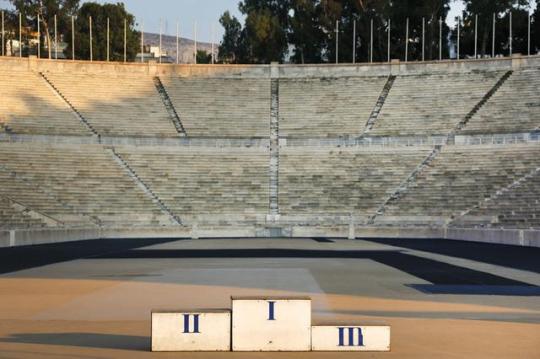



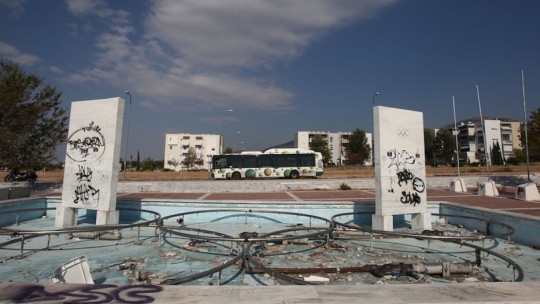


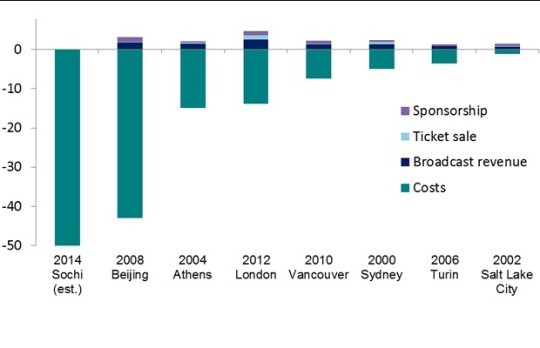




0 notes
Text
We are the World, We are the Children
“We are the World, We are the Children.” - U.S.A for Africa
So in my last blog, I have written almost 1000 words just to say how I feel about cosmopolitanism and the idea of “We Are One”. Obviously, that’s far from ENOUGH! So in this blog, I wanna go a little bit further and talk about how cultural hybridization leads to my idea of “We Are One”.
Okay enough talking, let’s jump into that!
Last time I said that different cultures can co-exist under cosmopolitanism but I didn’t say how. This time, I want to be more thorough because it is affecting all of us even if we don’t realize it! The idea of cosmopolitanism leads to cultural hybridization because it brings all different cultures together and kind of like putting them into one big cauldron. So, what exactly is “Cultural Hybridization”? According to the New York Times, it’s a process by which cultures around the world adopt a certain degree of homogenized global culture while clinging to aspects of their own traditional culture. (New York Times) Long story short, it means we live in a society which is the blending of elements from different cultures. As a HongKonger, I really have to say, I CAN’T AGREE MORE!
When I lived in Hong Kong, that’s my schedule of celebrating holidays in a year. First we started the year with celebrating New Year’s Day then we had Chinese Lunar New Year coming after. After that, we had QingMing Festival followed by Easter. It’s not done yet, we still had Buddha’s Birthday. YES, you saw that right. At the end of the year, we had Black Friday, Christmas and Boxing day. See, we celebrate holidays which are from at least four different cultures. We don’t just celebrate traditional chinese holidays, we also celebrate western, jewish and indian holidays, etc. Of course, there are more holidays that I didn’t mention. Me growing up in a little melting pot like Hong Kong, I can really relate to cultural hybridization. You might not realize this in reality, but I can give you some examples that you surely can relate to. Cultural hybridization creates so many tunnels for cultures to be exchanged and spread, most of them exist around us and we don’t realize. It doesn’t just stop at holidays, it also involves costumes, animes, food, movies, and music. We might dress in Korean styles, we might watch Japanese anime, we might eat Chinese food. We might even watch French movies and listen to Spanish songs, or even more, FROM PLACES ALL OVER THE WORLD!
A Couple of days ago, my friend posted a picture on instagram of her watching a Hong Kong movie called Internal Affair (I SUPER RECOMMEND!!!) because of a school assignment. This movie also has a Hollywood version called Departed which starred Leo Dicaprio and Matt Damon. There are also some Chinese movies which are super famous in North America like Crouching Tiger, Hidden Dragon (2000), Rush Hour (1998), Mulan (1998), In the Mood for Love (2000) and Shaolin Soccer (2001), etc(Jeez I love all these). These movies have been watched by so many people living around the world not just in Asia, some of the movies even became a part of the internet culture like meme. See? They created a diffusion of Western cultures and Asian cultures, they are all the tunnels that cultural hybridization uses to spread different cultures to different places.
Now, you might be thinking about how cultural hybridization leads to the idea of “We Are One”. Here it is. Cultural hybridization reduces the boundaries between places and makes more connections between them. Under the ideal cultural hybridization, we own our cultures and you own yours, yet we understand each other’s cultures. When we have respect and understanding for others, it connects us. Cultural hybridization makes it easier for us to have shared values because it blends different cultures together. When we have shared values, we more likely tend to help them. It makes us love each other, care about each other and help each other because they are all part of our daily lives. In a way, helping them also means helping us because “We Are One”, aren’t we? Sharing the same values makes us connected, it means we can contribute to the world together. Here is a great example.
“We Are The World”
“We Are The World” is a charity single recorded in 1985 by the most famous artists in the music industry at the time to raise funds for the starving people in Africa, specifically Ethiopia. This is exactly one of the advantages of cultural hybridization. We feel what others feel because cultural hybridization brings us all together. U.S.A for Africa is a good example, it connects different people around the world to help a specific group of people. Because of cultural hybridization, we listen to their songs since their culture is mixed with ours. This makes us share the same values, and because we share the values so we can contribute to the world as one. U.S.A for Africa also leads to an Asian version of “We Are The World”. “Tomorrow Will Be Better” was recorded in 1985 under the inspiration of “We Are The World” to raise money for World Vision to help with aid to Africa. Of course, celebrities have to know how to give when they are taking advantage of cultural hybridization. They know what they are capable of, in order to contribute to the world, they use their fame to raise awareness of what happens on the other side of the world. Due to cultural hybridization, we grow up listening to their songs. Their culture is a part of our culture, so we share the same values. Even the title is just U.S.A for Africa. It actually reaches more people than just the people in America. It reaches worldly to anyone who shares the same culture, thanks to cultural hybridization it is a huge number.
Now you see how cultural hybridization connects us and helps us “make the world a better place”. Thanks to cultural hybridization, we are one big family. We have our own unique culture, yet we have others too. We are connected by the values we share, we care about others and we contribute to the world together as one.
We are tighter to each other, We are stronger when we are together, WE ARE ONE.
There’s a choice we’re making
We’re saving our own lives
It’s true we’ll make a better day
Just you and me
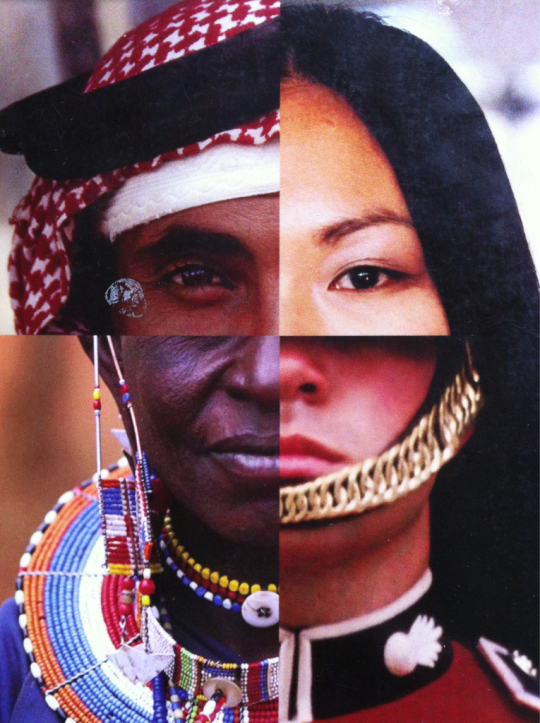
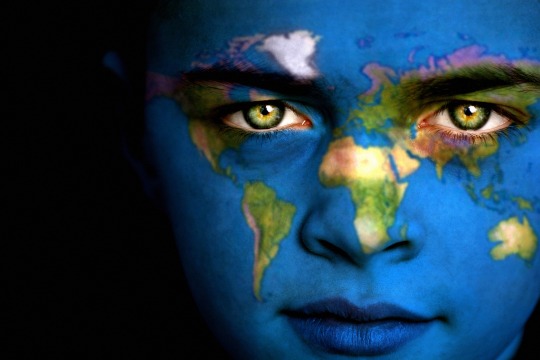
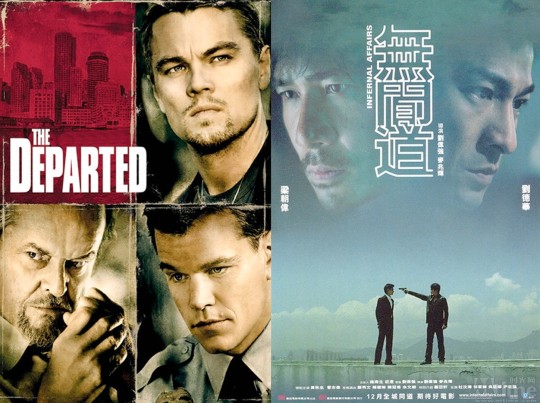
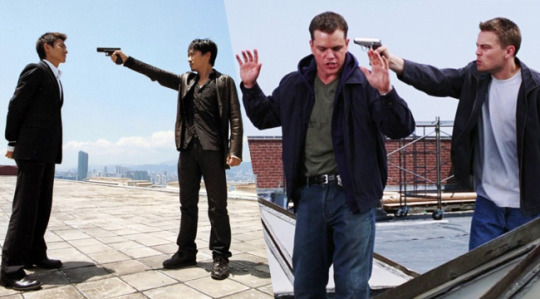
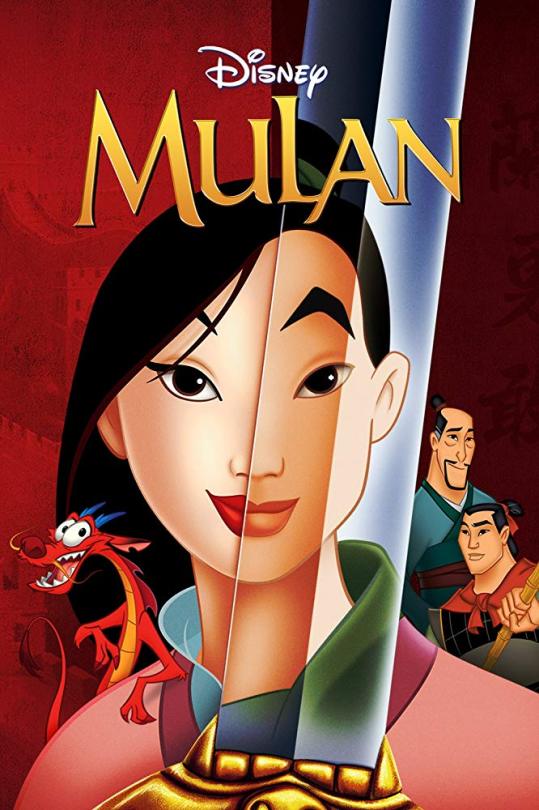


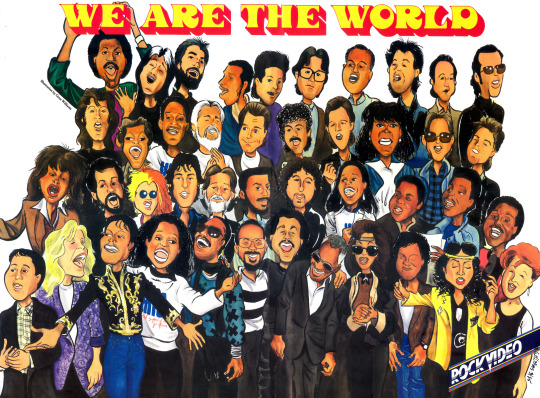
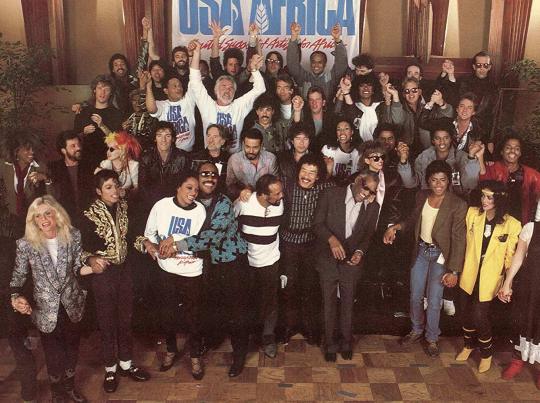
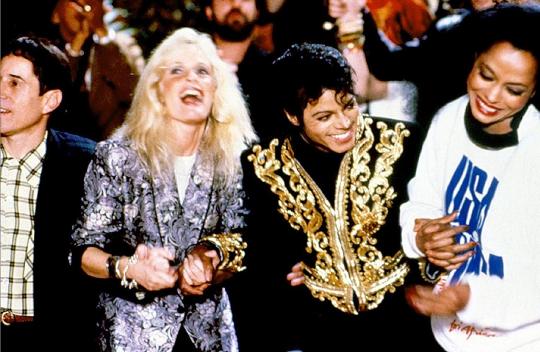
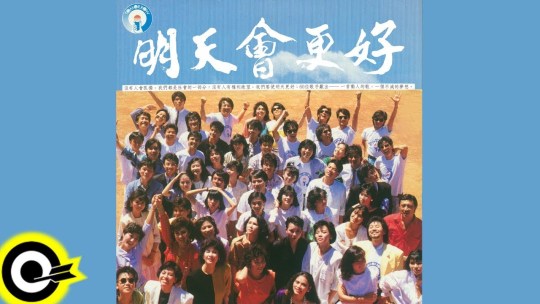

3 notes
·
View notes
Text
Under the sky, under the heavens, there is but one family.
“Under the sky, under the heavens, there is but one family.” - Bruce Lee
A couple of days ago, I watched a Bruce Lee film named Fist of Fury. Seeing Bruce on screen reminded me of the footage where he was asked whether he thought himself as Chinese or North American. He answered the question wisely, at the same time, he was also demonstrating the idea of cosmopolitanism. While I was like “Wait! I’ve learned that in GLOBE!”, I read the news about what was happening in ChungKing Mansion in Hong Kong. I realized I had something about cosmopolitanism that I wanted to share with you guys, I think this might be a good chance for me to share my own thoughts on cosmopolitanism by writing this blog.
I remember helping an old lady who couldn’t speak English find her way to the bus stop, she couldn’t speak my language and I couldn’t speak hers. Anyways, I found a way to give her the direction to the bus stop, I noticed that there was a language barrier between me and her. BUT! Does that affect my decision to help her? Does nationality really matter? Do the languages people speak really matter? Will it be one of my concerns when I help you, or anyone else in the world? Will any kind of national differences get in the way and stop me from helping people who are in need? I don’t think so. I realized that with the growth of nationalism, (it would be ultranationalism in China in that case), people tend to ONLY help others who are from their country or speak their language. For the past 5 years, people have been building their own communities around the world. IT IS OKAY to have your own communities, after all, embracing your culture and having respect for others is one of the keys of cosmopolitanism. Somehow, that’s not what I have been feeling, from my experience, they don’t feel like helping people “who are not their race”, or so-called “my people”.
Don’t get me wrong guys, I think accepting who you are, embracing your culture/ethnicity, are super important. After all, if we throw away our beliefs, culture, ethnic background, the world will just be a homogeneous, boring world. WHY? Because you and I and her and he are all the same, we will lose our distinctiveness. Without culture, there is no society. Somehow, our society is heading in the opposite direction. We Live In A Society where people only care about their cultures, they are bound by the idea of nationality, geographical boundaries, etc. People tend to only care about others who speak their languages, watch their movies, listen to the songs they listen to. Those became the concerns before they decide to help someone. Does that sound ridiculous to you? That means I will only give you a ride if you know who Jackie Chan is, I will only send you to the hospital if you know who Eminem is. What? You don’t know about FRIENDS, man you are not getting any help from me. It even sounds more ridiculous saying this, but in fact, it is what is happening around the world. Cosmopolitanism is not an easy thing to achieve in this world, it will never be. To do it, the first thing we have to do is how to respect others’ cultures. The ideas of loving who you are and loving everyone can and have to stick together for cosmopolitanism to take the first step. It is not like the winner is either you or me, there is no winner. I think that’s the hardest part to do. We have to learn to respect each other first, then we can move on to how to make cosmopolitanism work. That’s the first thing we should know!
Diversity means you embrace your culture, you love your culture, you want to show the world what’s good in your culture. At the same time, it means having room for other cultures to live inside that circle of society(just think of it as a circle). It means respect, not just for your own culture, but for others’ cultures too. That’s what I think is the hardest and the most important part to do because if people don’t realize this, it will just become a cultural invasion that is happening now. There is no conflict between embracing our identities and achieving cosmopolitanism!
You may ask, REALLY? YOU HAVE SPENT FIVE MINUTES SAYING THAT THEY COULD STAY TOGETHER, HOW WE SHOULD DO AND HOW WE SHOULD BE AWARE OF THIS AND THAT AND THOSE, IS IT REALLY THE FACT? IS IT REALLY POSSIBLE?
I am here to tell you, YES, IT IS POSSIBLE!
Here is why.
In the middle of glitzy Tsim Sha Tsui Hong Kong shopping district stands a nondescript building known as Chungking Mansions. Known for its ethnic diversity, affordable curries(which are SUPER GOOD, it’s a must-try if you have a chance), African bistros, sari stores,etc.. It always acts as a large gathering place for some of the ethnic minorities in Hong Kong. Even a reporter from CNN stated that the complex was the "unofficial African quarter of Hong Kong"(that’s what wiki said) because the building is mostly lived by South Asians, Middle Eastern people, Nigerians, and Europeans. It was also elected as the "Best Example of Globalization in Action" by TIME. Somehow, I know so many people who claimed that they would never go there because it looked “dangerous”, the building is also taken by people as a chaotic No Man’s Land. (mostly because they don’t know what things really look like in there)
Now you know the story behind Chungking Mansions, let’s talk about what it has to do with cosmopolitanism.
Last week a democracy activist was viciously attacked with hammers and reports had trickled out that the assailants were South Asian, stoking fears that protesters may target minorities in retaliation. Those attackers try to split society, but the effect is the opposite, they are making the people more united. Those fears didn’t come true. Instead, a group of South Asians stood at the front steps of ChungKing Mansions, hanging out water and egg tarts to the protesters when they marched through the heart of Tsim Sha Tsui. They were also showing their support by singing the popular protest anthem and saying “WE ARE ONE” and “WE CONNECT”.
Isn’t that the gist of cosmopolitanism?
“WE ARE ONE“
This is just the point I am trying to prove throughout the whole blog! It is okay for society to have culture distinctiveness and cosmopolitanism, BOTH TOGETHER. Why? Because things like languages, where you are from, what clothes you wear, what food you eat most, WON’T be standing above our moral values. They won’t stop us from DOING THE RIGHT THING! When we are facing serious, ethical problems, when there are lives at stake, when it’s about humanity, when it’s about doing the right thing, we can always come together and help each other out. I think ChungKing Mansions is really proving that culture would never stand above moral values. It doesn’t matter what your race is, we are all human. You can identify yourselves as all you want, HongKonger, Canadian, Pakistani. Those names only represent your culture, and that’s it. They won’t stop us from helping each other. We cannot choose our culture, but we have the ability to do the right thing. Cultural differences can’t affect our decision, at the same time, we are showing respect to other cultures. We embrace ours, respect and accept yours. That’s something we have to work on while we are achieving a cosmopolitan world. No matter what language you speak, where you are born, WE ARE ONE. Somehow before we can achieve it, we still have a long way to go.
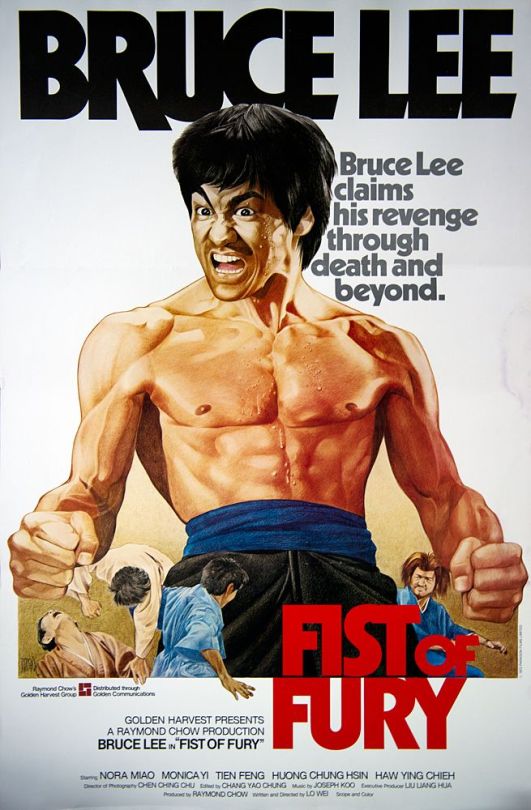
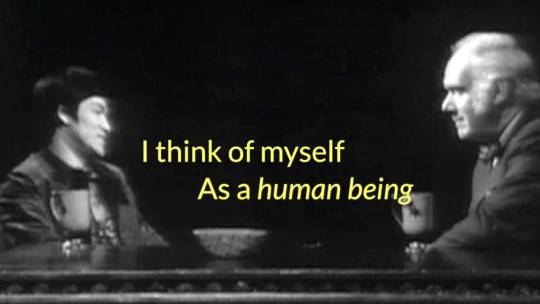

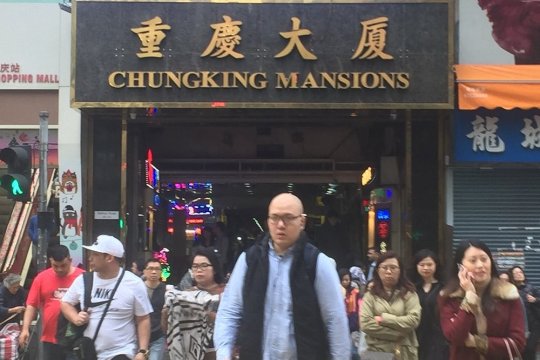
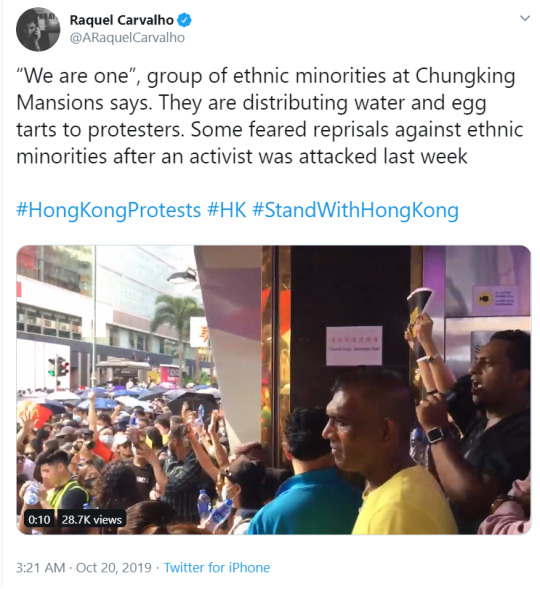
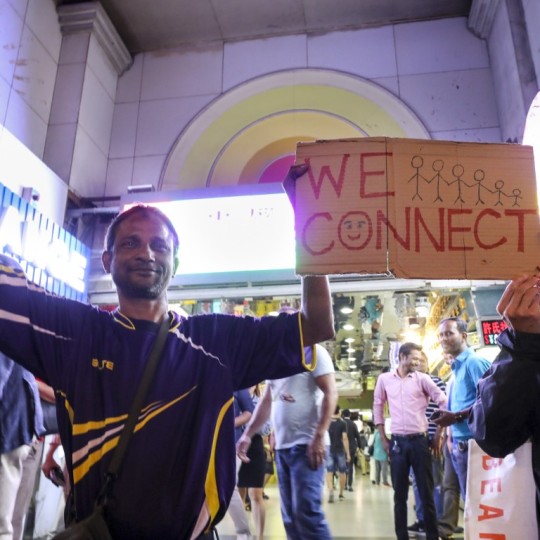
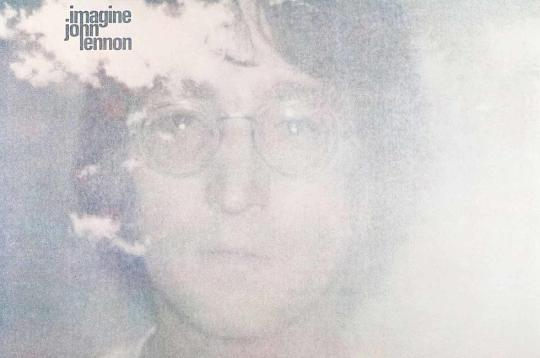
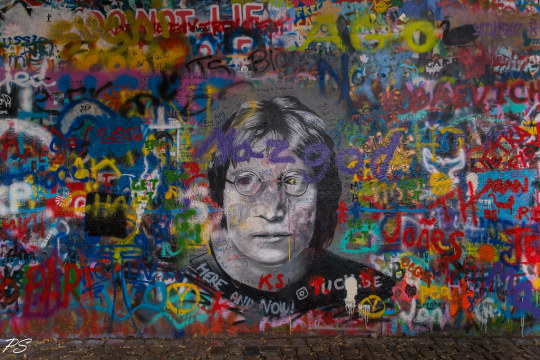
Imagine all the people
Living life in peace
You, you may say I'm a dreamer
But I'm not the only one
I hope someday you will join us
And the world will be as one
#globalization1a03#cosmopolitanism#bruce lee#@hongkong#chungkingmansions#we are one#weconnect#john lennon
0 notes
Text
It was the best of times, it was the worst of times.
It was the best of times, it was the worst of times. - Charles Dickens
To be honest, I always want to use this quote as my opening of a blog.
Now I finally have my chance, YES!
Let’s get back to this blog. So a few days ago, I went to watch Once Upon a Time in Hollywood by Quentin Tarantino (God I love him so much, BIG FAN OF HIM!!!) and Spider-man Far From Home by Marvel.
One is Quentin saying how he loves the old Hollywood, not just the movies but the old Hollywood where there were all kinds of stuff happening in a small place. Another one is Spider-man, a story about spider-man. After watching both movies, it reminded me of how globalization is such a huge impact on the film industry and even more, how it led to the rise of localization. Now I finally can see how globalization is moving its invisible hands. GLOBE KILLS LOCAL?
I think globalization has its upsides and downsides, like everything else. It gives people more ways and chances to know the latest movies from the other side of the world. At the same time, It is isolating and eradicating the space for local, indie film industry to live. GLOBE KILLS LOCAL!
From how Marvel movies are being promoted and loved, I would say that globalization is “serving” the majority of the people. Not all, but big enough to make the minority disappear. Before globalization hit us, there were a ton of “non-mainstream” movies, or you can say cult movies, OR you can say WEIRD movies. Such as Taxi Driver, Fight Club, Leon: The Professional, etc., even some more local films from everywhere. Wherever those indie films are from, Canada, Hong Kong (where I grew up) or US, doesn’t matter. Nowadays, it would be really difficult for those types of movies to have their success again. GLOBE KILLS INDIE!
People tend to follow the trend, we like seeing what’s popular. Instead of spending more time to dig into it to see if there’s any local films worth watching, we prefer watching what’s already “hit”. We don’t spend a couple of hours to find if there are any good local movies, we just jump right into the “Marvel hole”.
10M people watched, I think you should too! then “boop”, you are in the hole already.
Yes, it is time-saving, you don’t have to think that much, just enjoy your popcorn. I won’t blame the audience, I blame globalization for making indie films harder and harder to be found. The growth of globalization make film producers realize they can make a bunch of money by doing popcorn movies (definitely not Michael Bay), why would they even risk making a movie that no one may even watch? One thing I really hate is how the producers make the movies “NO DEPTH and MEANING” so it fits everyone. Babies can watch it, kids can watch it, you and I can watch it, even my grandma can watch it. “OH if the movie has no depth and meaning, I am sure everyone would understand it, more people will watch it then we will make more money!” GLOBE KILLS GOOD FILMS!
When we are thinking about how globalization is giving us more options, we always ignore the homogeneity it gives us. We might think of how diverse it is when we are deciding which film to watch, at the same time we don't realize that they are actually all the same. In fact, the more options we have, the less we can really choose because we can only see what globalization wants us to see. So Marvel can be where it is today, they should thank globalization. (THANK YOU GLOBE!)
We don’t just see how globalization is taking over the market from the film industry, we can also see it from the music and video game industry. The options we have are actually fewer than before. I think people are starting to realize this, that’s why localization has been a big topic that people love to support and talk about for the past 5 years. Globalization brings us more information, more preferences and options, at the same time, we should all try our best to defend local industries to prevent them from disappearing because of the growth of globalization. Now that’s what I call diversity. DONT LET GLOBE KILL LOCAL FILMS!
I hope one day, we will be in that golden age where all types of good movies can be seen and heard.

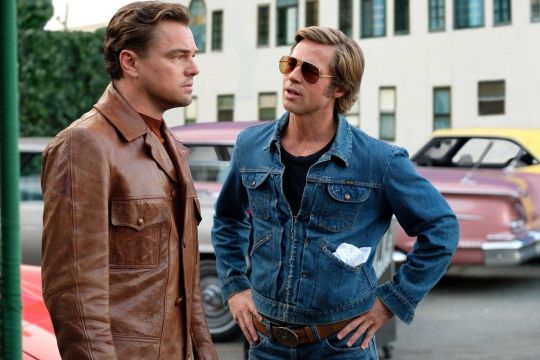

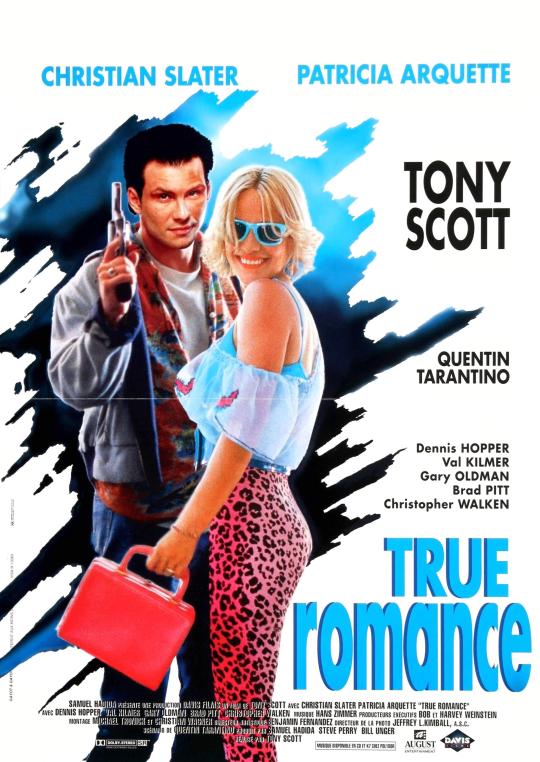

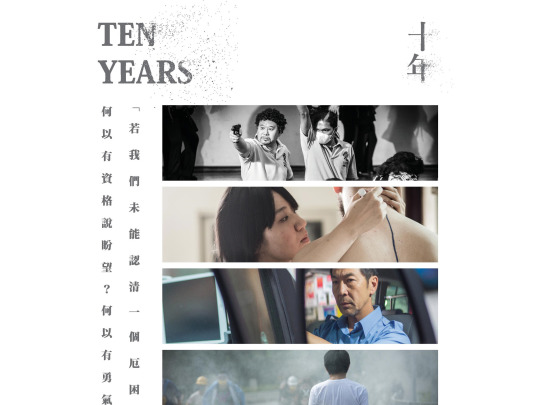

1 note
·
View note